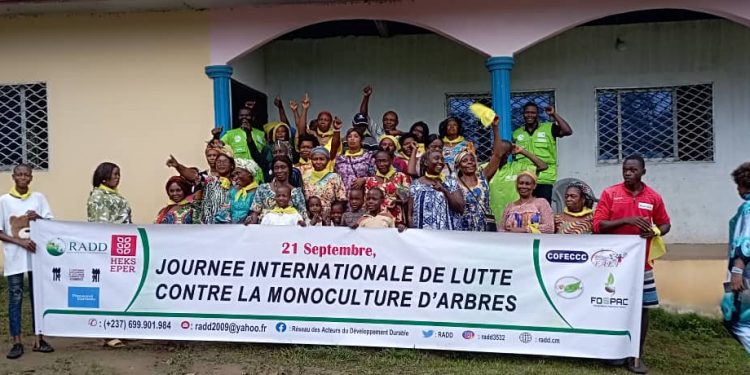Story, Louvier Kindo Tombe
September 21, 2024 was a special day for riparian women in Cameroon especially those living around agro-industrial zones. It was the International Day of Struggle against Monoculture Plantations.
In Kienke, a village in Loukondje municipality, Ocean Division of the South region of Cameroon, the riparian women celebrated through sensitization workshops and training sessions during which they exchanged and shared experiences with one another, and with guests from the international community on how to better defend their rights.
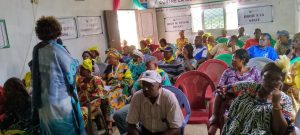
The International Day of Struggle against Monoculture Tree Plantations is an occasion for organizations, networks and groups to celebrate resistance against industrial tree plantations.
“Besides the respects of our rights, agro-industries need to stop the expansion of monoculture plantations,” says Marie Crescence Ngobo, Executive Secretary of RADD.
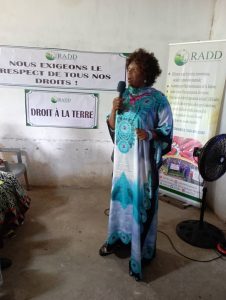
RADD is the Network of Sustainable Development Actors. It is the network that organized the celebration in Kienke, in collaboration with 8 riparian women associations around agro-industries in Cameroon.
The different activities brought to the lamp light; the various injustices lived by communities faced with the negative actions of agro-industries
“We don’t have where to farm here because SOCAPALM has seized all of our land,” says Ngon Bissou Felicite, a native of Edea.
At the end of the celebration the women took a firm commitment to continue the fight against the proliferation of monoculture plantations in their communities. They adopted the slogan “our land, our future”. “We are the #RestorationGeneration”.
Cries from riparian women in Cameroon

The theme for the 2024 edition of the International Day of Struggle against Monoculture Plantations was “land restoration, stop desertification, and reinforce resistance to dry lands”. The women all raised their voices to denounce the negative consequences of the proliferation of monoculture plantations.
“The activities of SOCAPALM in our community have impacted us negatively. Most of the workers have turned to harass our young girls sexually,” says Nyangon Nsombo Judith.
Another woman, Gwos Jacqueline said “most of the rape cases are committed inside farms, and it has scared away most farmers from their farms”.
“NGOs operating in our zone like RADD, are our only hope for survival,” says Memana Marie Chantal, from Nlomesse village where SUDCAM is producing devastating effects.
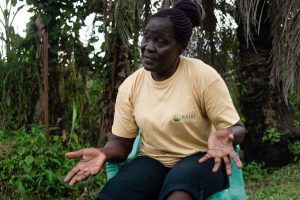
Present at the celebration was the Executive Secretary of ‘Journalists for Earth’, who said that the testimonies from the riparian women show that the actions of agro–industries are not only unacceptable but are “a shame to the society”.
“It is time to put an end to these. Authorities should stop giving out authorizations to companies, who will destroy the forest, provoke climate change and exploit communities,” she added.
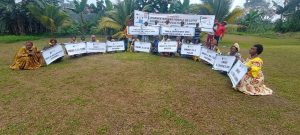
NYANGONE Christelle, a riparian woman in Nyiete who has suffered a lot from the effects of HEVECAM, a company in the locality said “our wish is to see authorities of HEVECAM work hand in hand with us for the satisfaction of everyone”.
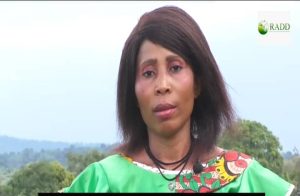
Worth noting is the fact that the women unanimously demands for ”access to farmlands, quality education for their children, descent working conditions, access to healthcare, sustainable economic development, access to seeds to ensure food sovereignty, and portable water” among others.
